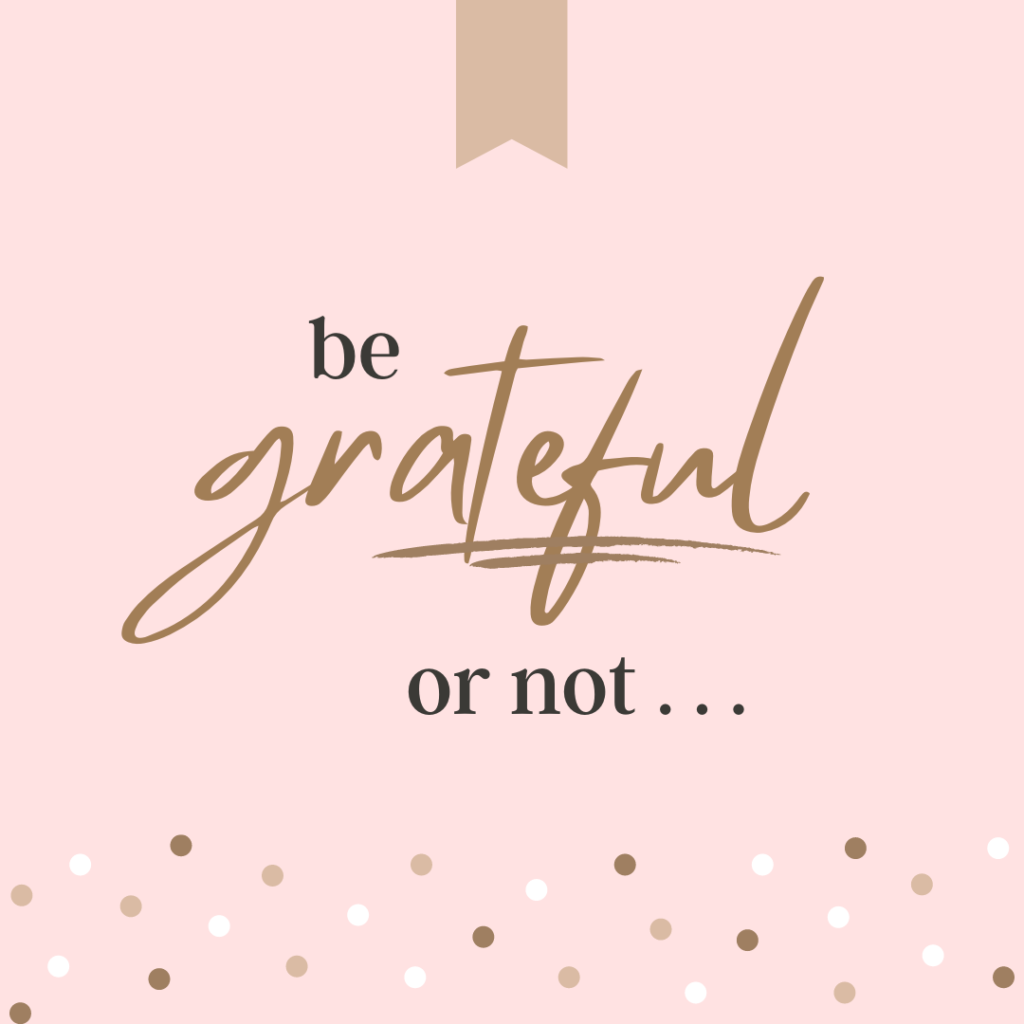
One of the reasons I love November is that it is a month dedicated to gratitude. As we prepare for the Thanksgiving holiday in the U.S., we spend the days and weeks leading up to it giving thanks for what we have and expressing our gratitude to others. It’s definitely a feel good time of the year. What about when gratitude doesn’t feel so good, though?
Gratitude can be used in ways, intentionally or unintentionally, that leave us feeling anything but grateful. I speak from firsthand experience. At times, I have taken the practice of gratitude and twisted it in ways that it is not intended to be used. I also have been on the receiving end of gratitude gone wrong. Let’s break this down.
I/You should be/feel grateful for __________________. We may say this to ourselves or to another person to shift our/their perspective about a particular situation. However, we need to proceed with caution when using it.
It is difficult to watch someone go through a painful experience, and our natural inclination may be to try to make them feel better. This extends to ourselves, as well. So, we may remind ourselves and others to look on the bright side and to swap the challenging emotion or experience for gratitude. This is where gratitude can go wrong.
When dealing with difficult emotions, in order to heal, we have to process them, and that process takes time. Maybe, more time than we want it to take. When we tell ourselves and others that we/they should feel grateful instead of sad, anxious, stressed, and so on, we may be doing more harm than good.
I definitely have should on myself and others, and other people have should on me. There have been plenty of times when I have misused gratitude, in my attempt to be supportive or helpful. While I may have had good intentions, my use of gratitude may not always have been received in the manner intended.
There have been times when others have enumerated every reason why I should feel grateful when I have been in the throes of a tough time, and it left me feeling worse. Even if I agreed with what they were saying, sometimes, I just was not ready to allow in the gratitude, which left me feeling guilty for not feeling more grateful. I needed to sit with the pain on its own without inviting in gratitude just yet, if at all.
I cringe when I think of the times that I have should on others in similar attempts to help. I have allowed my own enthusiasm for gratitude to deflect the pain someone else may be feeling, either to try to cheer them up, to deflect from my own discomfort, or a bit of both. Instead of assuming that they needed to be reminded of all there is to be grateful for, it would have been more beneficial to simply be present, listen, and to ask what would be most helpful in the moment. This is a lesson that I continue to learn.
People who are in pain need our presence, not our gratitude platitudes. Gratitude may or may not be part of one’s healing process, and it’s important to be mindful and respectful of the process and where people are in it.
We don’t have to, or need to, feel grateful during every moment of our lives, and neither does anyone else. Gratitude can co-exist with our other emotions, instead of avoiding them or detracting from them. Depending on the situation and the emotions involved, we may be able to find something to be grateful for or we may not. Both are okay.
#gratitude #gratitudegonewrong #mindset #feelings #emotions #spaceandgrace #healingprocess #shoulding #lifecoach #lifecoaching #elev8lifecoaching